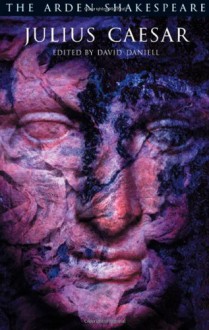This edition of one of Shakespeare's best known and most frequently performed plays argues for Julius Caesar as a new kind of political play, a radical departure from contemporary practice, combining fast action and immediacy with compelling rhetorical language, and finding a clear context for...
show more
This edition of one of Shakespeare's best known and most frequently performed plays argues for Julius Caesar as a new kind of political play, a radical departure from contemporary practice, combining fast action and immediacy with compelling rhetorical language, and finding a clear context for its study of tyranny in the last decade of the reign of Elizabeth I. The richly experimental verse and the complex structure of the play are analyzed in depth, and a strong case is made for this to be the first play to be performed at Shakespeare's Globe Theatre. The introduction to the play begins with a brief overview of its themes, characters, verse, and history. The editor proceeds to consider the dating of the play and why Shakespeare chose to write Julius Caesar in 1599, looking at the works that preceded it as well as other historical context. In the next sections, Daniell examines the play’s language and structures, with extensive comparison to the other tragedies and histories. The editor then discusses the sources of the play, focusing primarily on Plutarch’s Lives. After a survey of the critical and performance histories of the play, Daniell concludes his introduction with a section on textual problems and interpretations. Also included in this edition are an appendix, Plutarch’s Lives of the Noble Grecians and Romanes, and a list of abbreviations and references. The Arden Shakespeare has developed a reputation as the pre-eminent critical edition of Shakespeare for its exceptional scholarship, reflected in the thoroughness of each volume. An introduction comprehensively contextualizes the play, chronicling the history and culture that surrounded and influenced Shakespeare at the time of its writing and performance, and closely surveying critical approaches to the work. Detailed appendices address problems like dating and casting, and analyze the differing Quarto and Folio sources. A full commentary by one or more of the play’s foremost contemporary scholars illuminates the text, glossing unfamiliar terms and drawing from an abundance of research and expertise to explain allusions and significant background information. Highly informative and accessible, Arden offers the fullest experience of Shakespeare available to a reader.
show less






 12 years ago
12 years ago